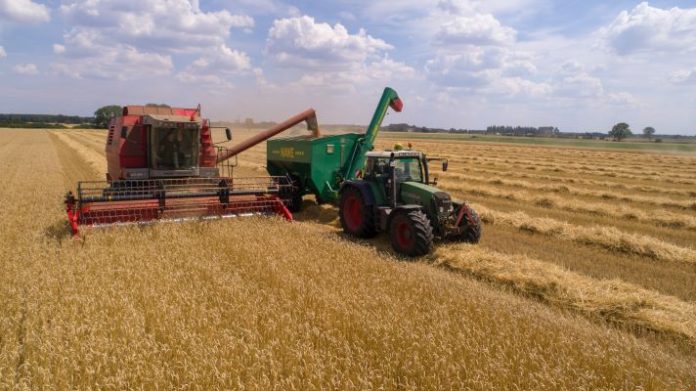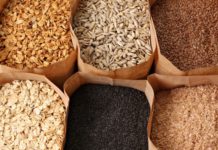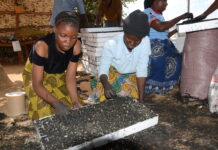Most agricultural outfits in Africa are family-owned and independently operated. This means their budgets are not free to purchase considerable and advanced equipment that would otherwise improve their livelihoods and profit margins.
However, accessibility is increasing for African farmers as programs are beginning to offer rentals to assist them with more affordable pricing. Could these revolutionize productivity in Africa’s agricultural sector, creating more widespread equality and better quality of life across the continent?
How Renting Improves Africa’s Agricultural Production
Agriculture is most of the most improved sectors since its inception thousands of years ago, revolutionizing with methods like crop rotation and technology like fertilizer. Tractors and machinery have drastically cut the manual labor required to tend to large farms. However, these boons are limited to select countries with more easily thriving farms.
To decrease that gap, small farms in less-affluent areas must still reap the benefits of productive agricultural technology and companies have invented services to provide. John Deere has partnered with Hello Tractor, a startup tractor rental service that could save farmers money and decrease farm workloads. An Uber-like app structure will allow farmers to request tractors via text — reducing production times from 40 days to eight hours.
Allowing farmers to rent equipment will enable them to do many manual tasks on the fields in record time, such as:
- Seed planting
- Watering
- Overseeing pest management
- Removing weeds
- Harvesting and storing
This can increase crop yield and revenue, helping countless farmers obtain self-sufficiency and freedom. Hello Tractor has operated in several African countries like Nigeria, Kenya and Bangladesh and seeks to expand operations in the coming years.
What will help farmers to improve their productivity is overcoming the perceived obligation from more developed countries that equipment ownership is necessary for success. A sharing economy will create that structure, improving African agriculture by demonstrating the value of equipment-sharing initiatives.
Advantages of Farm Machineries on African Farms
Nowadays, countries are making more advancements in the sustainable agriculture movement. Farm equipment rentals have the added benefit of decreasing the need for excessive machine manufacturing. Since few farms own, the market will only need to make a finite amount to keep up with sharing demands.
Working farms by hand is arguably a more sustainable method of management. However, implementing tractors — even if they use fossil fuels — could still have more environmental benefits while creating a more stable economy for African farmers.
With machinery, controlling the output more constructively will give farmers peace of mind as they find more ways to optimize their land. Tractors are often highly customizable with additional peripherals, allowing farmers room to innovate how they want to operate.
With equipment, fewer chemical fertilizers are used that further deplete the soil of nutrients. Equipment can push this goal forward by wasting less time purchasing and implementing them. Harvesting, storing and watering crops has never been more productive or advantageous for the environment.
Mending the Equipment Gap
According to the United Nations, Africa’s density for mechanized agriculture is much lower than the rest of the world, despite how much they produce. Rwanda has only 1.3 tractors per square kilometer compared to 128 in India. Mending the equipment gap could improve more than just efficiency — with productivity comes less food scarcity and more emotional security.
Food production could more than double if more efforts like farm equipment rental were made to reduce the inequalities embedded in the agricultural sector. Total factor productivity (TFP) growth measures the amount of resources input into a farm compared to output. In the United States, proven technology and equipment help boost TFP by a vast margin.
Creating greater accessibility will also improve productivity by bringing machines in where workers would be less efficient. Africa had the largest concentration of child labor in agriculture from 2012 to 2016. Allowing subsistence farmers to replace more expensive work with less expensive machines will also help the ethical foundations of Africa’s agricultural labor force.
Farm Equipment Rentals Improve African Agriculture
To reduce poverty and increase productivity, renting farm equipment to African farmers could permanently change the game. It will reinvigorate farmers by growing revenue, putting less strain on their health, leveling out the equipment disparity and creating better lives for farmers in less-privileged areas.
 Jane is an agriculture and environmental journalist and the founder and editor-in-chief of Environment.co, where she covers sustainability and eco-friendly living.
Jane is an agriculture and environmental journalist and the founder and editor-in-chief of Environment.co, where she covers sustainability and eco-friendly living.









[…] Source_link […]
[…] Source link […]
I have enjoyed reading this. how i wish this uber-like tractor hiring was available in malawi
Comments are closed.